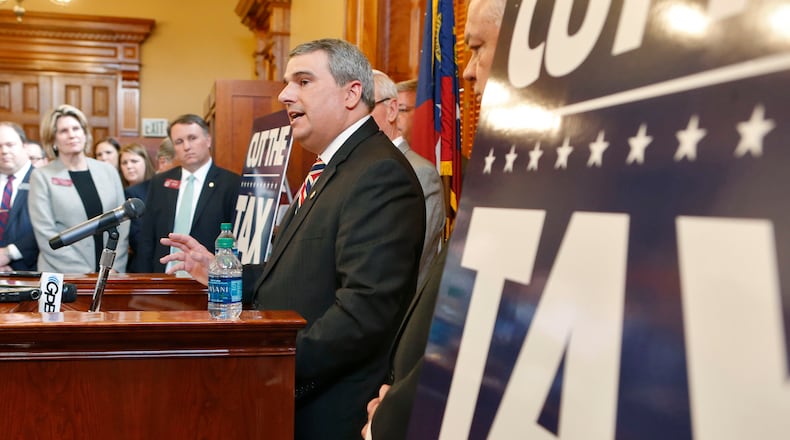Legislation to increase the limit on state tax credits for private school scholarships took a step forward through the General Assembly Wednesday, but the proposed increase is now smaller than originally intended.
Georgia currently allots $58 million a year in tax credits for taxpayers who assign money for private school scholarships, but House Bill 217 would gradually lift that cap to $100 million. It would rise to $65 million in the first year, then by 10 percent each year thereafter, assuming there’s enough demand. The program has been reaching the cap on the first day of availability each year.
An earlier version of the bill had proposed increasing it to $150 million, but chief co-sponsor Rep. John Carson, R-Marietta agreed to the smaller increase at the request of Rep. Jay Powell, chairman of the House Ways and Means Committee.
Powell, R-Camilla, also got the proportion of the credit available to “C” corporations and trusts lifted to 25 percent. Currently, these entities can get a credit for up to 75 percent of their state tax debt. But the proportion of the program available to them in aggregate is unlimited. Carson had proposed restricting them to 20 percent of the program.
The tax credit program works like this: Taxpayers pledge money — up to $1,000 for an individual, $2,500 per married couple and $10,000 for shareholders or owners of businesses (except those “C” corporations) — to specific private schools and get a tax credit for the amount. The money passes through nonprofit scholarship organizations, which assign it to students. Taxpayers can select which school gets the money but not which student.
The scholarships have helped pay for thousands of children to attend private schools, but critics say it reduces state funding available to subsidize traditional public schools. Some also criticize the level of transparency with the program. And Georgia taxpayers sued in Fulton County Superior Court in 2014, alleging it is unconstitutional because some schools that receive the money are religious, in apparent violation of the constitutional separation of church and state.
The Georgia Supreme Court heard the case in January and is expected to issue a decision sometime this year.
Carson, the chief co-sponsor of HB 217, included a couple changes to address the critics. The bill requires that scholarship organizations report the value of scholarships they issue by the income brackets of the recipient households. Currently, the law requires that each organization report the number of families per income bracket but not how much money they got. It’s an important distinction for a program that was pitched as a way to help poor kids attend private school. Carson said the bill also establishes a study committee to take a broad look at how scholarships are awarded.
The bill passed unanimously out of the subcommittee on income tax, and a hearing by the full Ways and Means Committee is scheduled Thursday.
About the Author
Keep Reading
The Latest
Featured



